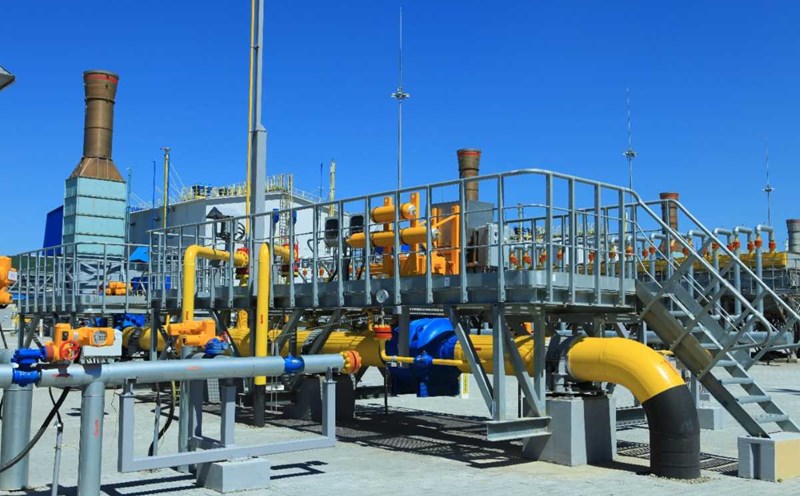At the annual conference of the world gas industry (Gastech) held in Milan (Italy) on September 11, US Secretary of Home Affairs Doug Burgum issued a clear message: " Europe must stop buying gas from Russia, and the US is ready to replace all".
Mr. Burgum - former Governor of the oil-rich state of North Dakota - emphasized: "We have achieved prosperity with abundant energy. Peace is guaranteed when allies buy energy from friends, not from opponents. According to Mr. Burgum, this is the embodiment of the "energy governance" policy - a pillar in President Donald Trump's second term.
After the outbreak of the Ukrainian conflict, Europe has sharply cut imports of gas via the Russian pipeline, but still maintained part of the Turkstream gas pipeline through Türkiye to Bulgaria. The EU aims to completely end Russian gas purchases by 2027.
But in reality, most of the cut off supplies from Russia have been replaced by liquefied natural gas (LNG) from the US.
In the first half of 2025, the EU will import a record 92 billion cubic meters of LNG, up 25% over the same period last year. The US accounts for more than 55% of this import, while Russia has only 14%.

If the trend continues, the share of US LNG in Europe could increase to 70-80%, equivalent to nearly 25% of the total gas demand of the bloc, higher than when Russia accounted for 40% before 2022.
The European Commission has made no secret of the new cohesion. US energy dominance complements our strategy of eliminating Russian energy, affirmed ditte Juul Jorgensen, Director General of Energy.
The message is quickly concretized: Italy and the US have just committed to strengthening energy cooperation. Accordingly, the Italian company Edison signed a deal to buy 0.7 million tons of US LNG/year from 2028, lasting 15 years.
Even Hungary, a Russian insured customer, has just signed a 10-year contract with Shell to import 200 million cubic meters of gas per year from 2026, in order to gradually reduce dependence on Russia.
Despite declaring it is impossible to abolish Russian gas for geography and infrastructure, Hungarian Foreign Minister Peter Szijjarto was forced to sit at the same table as Mr. Burgum a testament to the ongoing transition.
However, analysts warn that replacing Russia with the US does not mean that Europe is free of the risk. For example, just a major storm off the coast of the Gulf of Mexico could paralyze the US LNG supply chain.
In addition, instability in policy making in Washington could completely shock the market.
Thus, the EU may be entering an unprecedented level of dependence. Experts say that dependence on the US is less risky than Russia, but it does not mean absolute safety. The EU will be severely limited in its ability to rotate if supply fluctuates.
Currently, the goals of the US and EU are consistent, which is to cut off Russia's revenue from oil and gas exports. However, in the long term, no one is sure how long the energy and security benefits of both sides will remain together.
With increasing dependence on US LNG, Europe is simply moving from one dependence to another - an option that could cost the continent as it faces unprecedented strategic risks.









